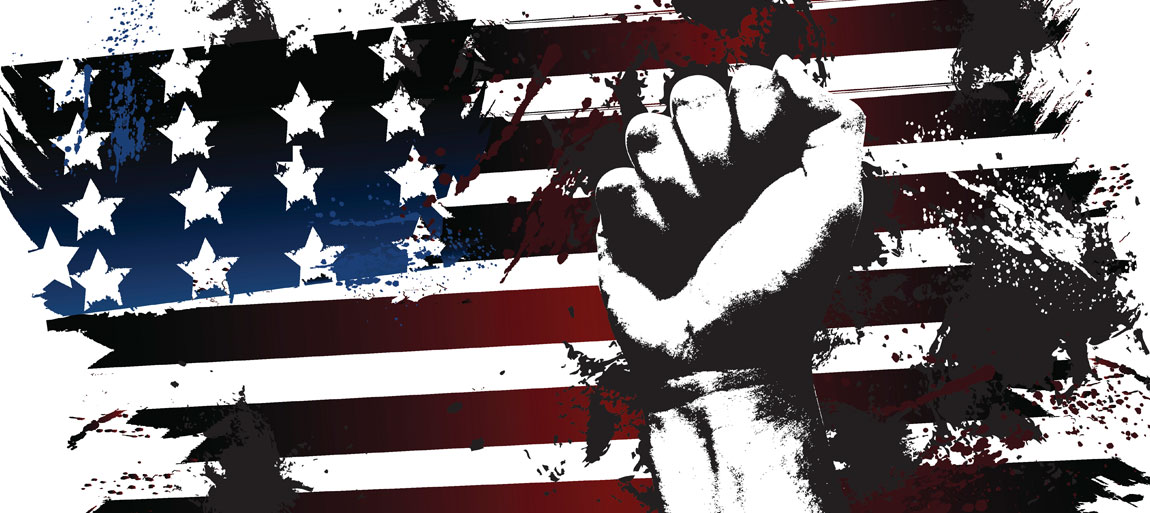
Unsung Champions of Equality: Remembering Forgotten Civil Rights Heroes
Without public recognition, innumerable unsung heroes and heroines toiled away, sometimes in great personal danger and in the face of injustice, to advance the cause of civil rights.



Without public recognition, innumerable unsung heroes and heroines toiled away, sometimes in great personal danger and in the face of injustice, to advance the cause of civil rights.
Famous people like Martin Luther King Jr., Rosa Parks, and Malcolm X worked relentlessly during the Civil Rights Movement of the 1950s and 1960s to bring about a watershed moment in American history. We will never forget their struggles for racial equality and the role they played in that struggle. The success of the movement, nevertheless, was due to more than just these legendary figures. Without public recognition, innumerable unsung heroes and heroines toiled away, sometimes at great personal danger and in the face of injustice, to advance the cause of civil rights. Here we highlight a few of these unsung heroes whose efforts were just as important as those of the more famous people of the time, who unfortunately tend to get more attention.
Diane Nash
A stalwart and courageous civil rights activist, Diane Nash was an inspiration to many. She helped organize the Freedom Rides and sit-ins as a prominent member of the Student Nonviolent Coordinating Committee (SNCC), which she helped form. Nash’s steadfast dedication to civil disobedience and nonviolent direct action was important in dismantling racial barriiers.
Septima Poinsette Clark
Beloved as the “Queen mother of the Civil Rights Movement,” Septima Poinsette Clark was an exceptional educator and advocate. In order to help African Americans in the South overcome voting limitations, she created literacy and citizenship programs. Numerous later voting rights campaigns might trace their roots back to Clark’s work.
Bayard Rustin
Black American leader and prominent civil rights movement strategist Bayard Rustin went out as gay. He had a pivotal role in planning the 1963 Jobs and Freedom March on Washington, where Martin Luther King Jr. gave his now-iconic “I Have a Dream” speech. Even during his lifetime, Rustin’s efforts to promote civil rights through peaceful demonstrations and organization were frequently overlooked.
Fannie Lou Hamer
One of the most influential advocates for voting rights was the sharecropper and civil rights leader Fannie Lou Hamer. She bravely co-founded the Mississippi Freedom Democratic Party (MFDP) and stood up to the Democratic Party’s racist policies and practices, all while enduring acts of violence and prejudice. At the 1964 Democratic National Convention, Hamer passionately spoke and testified, drawing national attention to the fight for voting rights.
Robert Moses
An ardent SNCC leader, Robert Moses was an ardent civil rights fighter. Despite frequent threats of physical harm, he was instrumental in coordinating voter registration operations in Mississippi. In the fight against Jim Crow legislation, Moses’s dedication to community organization and his attempts to give African Americans the power to vote were crucial.
James Farmer
James Farmer played an important role in the early days of the Civil Rights Movement and was a co-founder of CORE. He spearheaded the Freedom Rides, an initiative to end segregation on interstate transportation, and was an early proponent of nonviolent direct action strategies. The tactics of the campaign were greatly impacted by Farmer’s leadership and dedication to peaceful protest.
Ruby Doris Smith Robinson
Dorothy Smith’s Ruby One of the most well-known SNCC leaders, Robinson fought relentlessly against racial injustice. During the Freedom Summer of 1964, she helped organize voter registration drives, sit-ins, and other civil rights events. A major factor in the success of the campaign was Robinson’s capacity to inspire and motivate people, as well as her commitment to grassroots engagement.
Whitney Young Jr.
A pioneer in the civil rights movement, Whitney Young Jr. fought for social and economic fairness. He helped unite African Americans with corporate America while serving as the National Urban League’s executive director. An important step in achieving civil rights was Young’s promotion of economic independence and equal opportunity in the areas of employment and education.
Dorothy Height
A leader in the fight for women’s and civil rights, Dorothy Height was an inspiration to many. Collaborating with Martin Luther King Jr., she rose to the position of national council chair for black women. In the fight for equality, Height’s persistent work to combat gender and racial discrimination is underappreciated despite its critical importance.
Ella Baker
Ella Baker’s leadership and grassroots organization in SNCC made her an important role in the Civil Rights Movement. The groundwork for several civil rights initiatives was created by her work, which emphasized the importance of local communities driving change. To achieve its goals, the movement relied heavily on Baker’s capacity to rally young people and her focus on participatory democracy.
John Lewis
While John Lewis is better known than some of the other figures on this list, his contributions often go beyond the well-documented events of Bloody Sunday and the Selma to Montgomery marches. Lewis was a tireless advocate for civil rights, serving in Congress for over three decades. His dedication to nonviolent resistance and his unwavering commitment to justice made him an unsung hero in the struggle for racial equality.
Amelia Boynton Robinson
Amelia Boynton Robinson was a civil rights activist who played a pivotal role in organizing the Selma to Montgomery marches for voting rights. She faced brutal violence during the 1965 Bloody Sunday march, which galvanized national support for the Voting Rights Act. Robinson’s resilience and determination in the face of adversity were instrumental in the fight for voting rights.
Daisy Bates
Daisy Bates was a civil rights activist known for her leadership in the fight to desegregate Little Rock Central High School in 1957. As the president of the Arkansas chapter of the NAACP, she provided critical support to the “Little Rock Nine” in their battle for educational equality. Bates’s contributions to the integration of public schools were significant but often overlooked.
Robert Church Sr.
Robert Church Sr. was a prominent African American businessman and political activist in Memphis, Tennessee. He was a key figure in the city’s political landscape and played a significant role in registering African American voters in the early 20th century. Church’s efforts to build political power and economic independence among African Americans were pioneering.
Clara Luper
Clara Luper was an educator and civil rights activist who organized one of the earliest successful youth-led sit-ins in Oklahoma City in 1958. Her leadership and advocacy for nonviolent protest paved the way for other sit-ins across the country. Luper’s work in empowering young activists is often overshadowed by more widely recognized events.
Anna Arnold Hedgeman
Anna Arnold Hedgeman was a civil rights leader and the only woman on the administrative staff of the 1963 March on Washington for Jobs and Freedom. She was a trailblazer for African American women in the Civil Rights Movement and made significant contributions to social justice and gender equality.
Asa Philip Randolph
Asa Philip Randolph was a labor and civil rights leader who organized the 1963 March on Washington for Jobs and Freedom. He was instrumental in advocating for economic justice and workers’ rights. Randolph’s tireless efforts to bring attention to inequality in employment often go unrecognized.
Jo Ann Robinson
Jo Ann Robinson was a key organizer of the Montgomery Bus Boycott in 1955, a pivotal moment in the Civil Rights Movement. As a leader in the Women’s Political Council, Robinson played a central role in mobilizing African American women to challenge segregation on public buses in Montgomery, Alabama.
Gloria Richardson
Gloria Richardson was a civil rights leader in Cambridge, Maryland, where she led the Cambridge Movement, a campaign for racial equality and desegregation. Her fearless activism and negotiations with local officials helped bring about changes in civil rights policies and practices in the area.
C.T. Vivian
C.T. Vivian was a minister, author, and civil rights leader known for his commitment to nonviolent direct action. He was a close associate of Martin Luther King Jr. and played a crucial role in organizing and participating in civil rights campaigns, including the Freedom Rides and voter registration efforts.
These forgotten heroes and heroines of the Civil Rights Movement made invaluable contributions to the fight for racial equality, justice, and civil rights in the United States. Their dedication, resilience, and unwavering commitment to the cause have left an indelible mark on the history of civil rights. While their stories may have been overshadowed by more prominent figures, their impact on the movement’s success is undeniable. It is essential to remember and honor their legacy as we continue to strive for a more just and equitable society.

